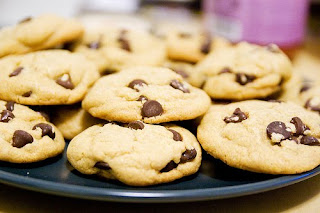Here it is:
Conscious Eating
“As for flavorsome and solid bodies, the teeth must cut them up, saliva and the other taste fluids must soak them, and the tongue must roll them against the palate so that they exude a juice which, by now sufficiently sapid, is appreciated by the taste buds which in turn give to the mashed food that passport it needs to be admitted to the human stomach.”
-Jean Anthelme Brillat-Savarin, The Physiology of Taste
We’ve all had the moment when conversation—even the most compelling discussion—is abruptly halted by an “Mmm” or a jumbled mouthful declaration, “Oh ma gawd.” A bite of something that has refocused our attention to the present and has inspired us to express a truth in that moment: I am experiencing a damn delicious morsel of food.
In the case of what I’ll call conscious eating, food can be a tool to shift gears from the cerebral demands of the day. It can help us drop those burdened thoughts that twirl relentlessly in our minds by attending to a specific sensation. I suggest that the next bite you take, if taken consciously, can help you feel life in the present moment and therefore, in a more broad and significant way, help you experience life to the fullest.
It’s easy to be distracted by what food has become; it’s Food with a capital F. It has become entertainment, from Iron Chef to The Biggest Loser. It is both lauded and vilified. In the past decade, Food has morphed into a national obsession, representing the best of human talents and the most detrimental of human faults and addictions. Reign in your associations with celebrity chefs and the McDonalds $1 menu, but think beyond simple bodily sustenance, and somewhere in that balance you will find that food offers us a unique opportunity to live in the moment and to appreciate.
Food naturally offers itself for this living consciously because, firstly, eating is a universal practice, and secondly, it is entirely guilt-free (in moderation) yet can be intensely pleasurable. Sara Murray Jordan, a gastroenterologist and food writer, said, “He who does not mind his belly will hardly mind anything else.”
Yet, I could not count how many meals I have absent-mindedly scarfed down while fretting about some past or future occurrence that stressed me out. I would have hardly noticed that the mozzarella in my panini (for instance) was stunningly fresh and perfectly melted. Instead, my increasing anxiety would work my shoulders all the way up to my ears, I would look down at my plate, see the reminiscent crumbs, and feel full, but not satisfied. I bet you can relate. Think about lunch at the office: How can you appreciate that sweet/tangy combination of your Tomato Basil soup when you are toggling between work email, personal email, two spreadsheets, and five websites?
If you’re on board with me, then let me offer you some tips. It helps to be sitting upright while you eat, which facilitates breath and therefore helps you relieve some of that tension that builds up throughout the day. Take in a deep, gratifying breath of the food’s aroma before, during, and after each bite. Here’s the tricky part: try not to think too hard about eating consciously. Over-analyzing each fork-full is just as detrimental as ignoring it. The goal is to savor it without making it a mental exercise. A tactic for those of you who find it hard to disengage in this way is to approach it with a sense of curiosity, “Hmm, I wonder how my body will respond to this taste?” It’s rejuvenating to submit yourself to current senses.
I propose this: let’s all take one bite at a time, and enjoy it! Sometimes, as people who are complex, intricate, and emotional, we need to get out of our own way.
Eat your cake and have it, too.






